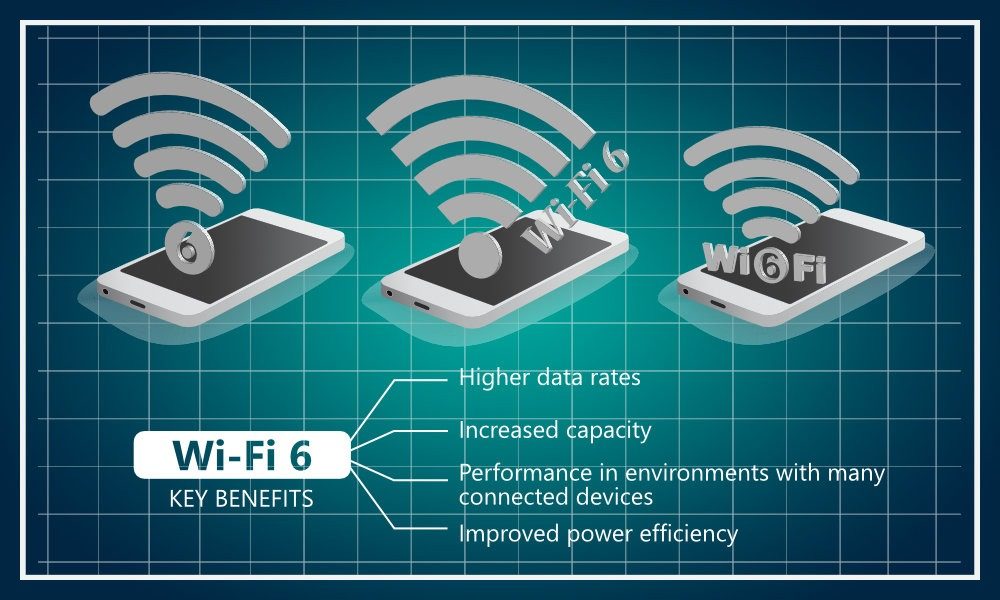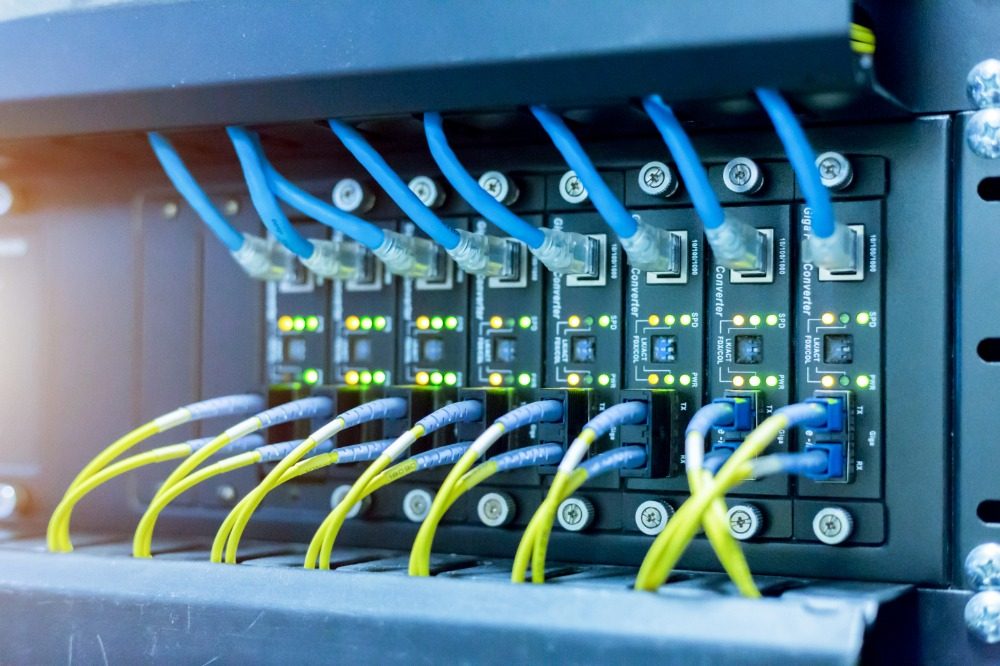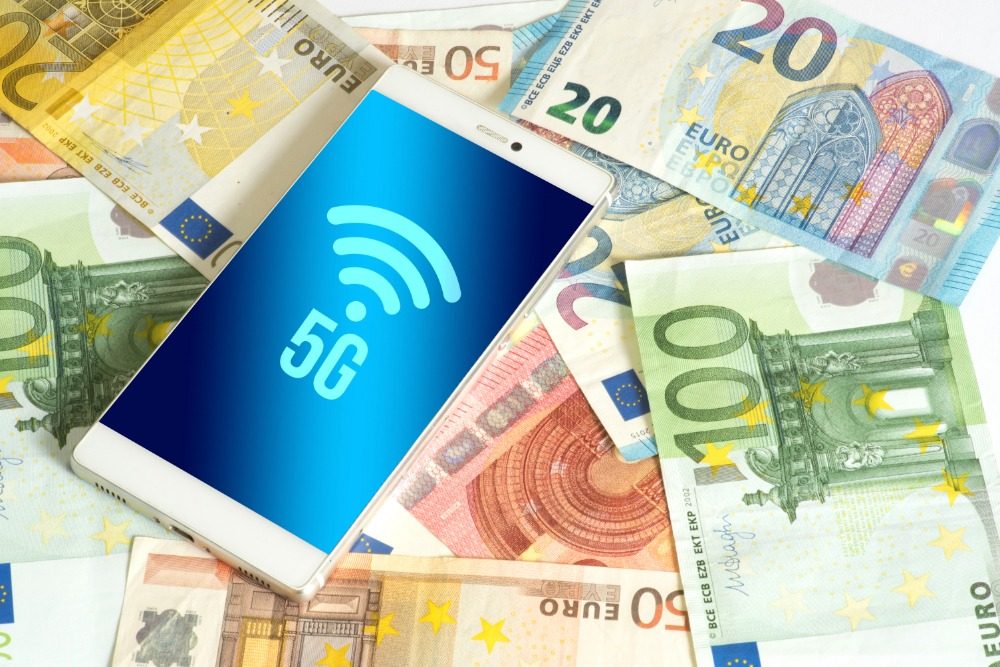A Wi-Fi system has moved from being something nice to have, to a vital business investment. At a cost of $250 - $500 per access point, you can work wonders on your business productivity and give your clients a reason to spend more on your establishment.
Being connected is essential in the communication of any organization, both internally and externally. Undoubtedly, networks and Internet connection provide facilities in the labor and professional field to manage, learn about, execute and distribute different projects and tasks in organizations. This is why today Wi-Fi plays an important role in the execution of functions in a company and more so if it is directly related to the digital and technological environment.
Investing in a secure Wi-Fi solution is not something you rush into. There are a whole lot of decisions to be made. Thus it is important that you take your time to conduct proper research on what is available out there, what they offer and what suits your business needs.
You could easily walk up to a guy around the corner and buy one, all fine and good. But have you considered that you might overpay, purchase a system that doesn't suit your needs or hire the wrong Wi-Fi service provider for the job?
This article gives you an insight into the Wi-Fi system and it's features. It intends to help you make an informed decision on the best and most secure Wi-Fi solution, at the best cost, that suits your business needs.
Why is Wi-Fi Important For Your Business?

Wi-Fi technology can be the difference between growth and stagnation in an increasingly competitive industry, especially for small and medium enterprises (SMEs) and those companies that want to be more efficient with all their resources. Wi-Fi connectivity has played a leading role in recent years by adding business mobility, efficiency, and connectivity between the company, employees, and customers.
According to a 2015 research conducted by EarthLink and AirTight Networks, 28% of businesses experienced increased customer loyalty due to In-Store Wi-Fi in their establishments. 82% of large and medium-sized retail participants had invested in In-Store Wi-Fi. 57% of enterprise retail participants offer Wi-Fi for both their customers and employees.
A similar research done by Wi-Fi enthusiast, Steven Scheck showed that, "customers are bound to stay longer if they can remain connected. As many as 62% of businesses pointed out that their customers spend more time in their facility or shop if Wi-Fi access is offered. Around 50% of customers spend more money as well."
It is evident that there is an Internet fever and everyone feels the need to invest in Wi-Fi technology, either to improve their user experience, to improve their infrastructures by incorporating more security systems or to offer it to their employees for a more effective workplace, among others.

Still not convinced? Well, here are benefits your business could be missing out on each day you operate without a proper Wi-Fi connection:
- Improves business productivity: A fast and reliable business-grade Wi-Fi can work wonders in your business when it comes to productivity. With the use of Wi-Fi technology, workflow can be simplified to a large extent. You and your staff can work from anywhere using cloud-based applications, while easily connecting with clients, partners, etc all over the globe.
- Increases your customer satisfaction: Free Wi-Fi is synonymous with a satisfied customer. One of the best benefits of offering free Wi-Fi in your business premises is that your users are happier. You are giving them a "freebie" that rewards them for choosing your establishment, providing more satisfaction to your customers, and the possibility that they will return. If you are not offering this service to your clients yet, this is a good time to consider the idea because you may be missing out on business opportunities, free advertising, and more revenue.
The truth is that everyone hopes to be able to connect to the Internet anywhere, and if it can be done without consuming their own data, much better. So having Wi-Fi in your business becomes an obligation to keep your customers comfortable for a long time in your establishment. You need your customers to spend as much time as possible and feel satisfied. If you offer a free Wi-Fi connection, they have a good reason to spend more time in your business premises. And customers who spend more time will likely spend more money. - Customer loyalty: If your customers feel comfortable in your establishment, they increase their visits and stays. When your users are happy, they spread their experience through word of mouth, which becomes a free marketing style and makes your business a point of reference in the area. Consequently, it can foster loyalty, encouraging them to repeat the experience and project good reviews.
- Employee satisfaction: One of the most frustrating things an employee can face in the workplace is having to stare at a loading screen for several minutes while trying to send a mail, upload a document, or do important work. This can totally ruin a happy mood and kill productivity in a flash. For employees to work happily and be productive, certain tools need to be put in place, one of which is a fast and reliable Wi-Fi connection.
From uploading files to sending emails, to connecting with clients and partners in the outside world, a reliable Wi-Fi connection can make this a smooth process. This consequently promotes productivity for faster and better work, with little or no frustration. - Provides uniqueness and added value: Having this additional service in your premises, establishment, office, factory or company is an added value that improves your business and brand image.
- Brand reinforcement: Putting the name of your business on your wireless network and personalizing it with a captive portal is similar to advertising. Marketing ensures that the more times you see, read or hear something, the more it becomes stuck in your head. So you can position your brand in an easy and subtle way from your Wi-Fi.
- Better follow-up of your customers: Offering free Wi-Fi in your business gives you control of the network connection, you can configure and customize the home page, collect data from customers, and target ads directly to their devices. This ensures that all customers are aware of the special offers, add-ons, and other services offered according to their interests, without depending on employees to market.
- Economically beneficial to your business: When working with the right provider, business-grade Wi-Fi connections can be cost-effective and don't require much time or equipment to install. Undoubtedly, it offers a significant return on investment, when looking at all the benefits above.
Things You Need to Know/Consider Before Investing In A Wi-Fi System For Your Business

1) What type of Wi-Fi do you want?

Before you invest in a Wi-Fi system for your business, one of the first things you will have to consider is the type of Wi-Fi to go for. There are different types of standards behind the Wi-Fi label, and all kinds of acronyms for the different types of Wi-Fi networks, but basically they all point to three things:
- How far can the wireless signal go? = Range
- How much data can the signal send? = Speed
- Is it compatible with other standards? = Compatibility
The different types of standards include: Wi-Fi 1, 2, 3, which are for outdated devices, and Wi-Fi 4, 5 and 6, which are for newer devices. These standards point to a set of rules, conditions, and requirements that devices using a particular type of standard must meet.
The most current Wi-Fi standards are backward compatible, so if you buy a device that uses the latest Wi-Fi standard it will work on all networks that support an older standard. But this does not work the other way around. The new ones are not compatible with the older ones.
Presently, the Wi-Fi 5 solution is the most widely used in the industry, as it provides the needed balance between range, network performance and support, in relation to the movement of users between sites with their devices (device mobility). Thereby serving a wide array of wireless transmission needs. However, with the introduction of the Wi-Fi 6 solution in 2019, business owners like you should start looking towards the future of Wi-Fi technology.
2) What are those 5 things that are important for a business owner to know about Wi-Fi 6?

The Wi-Fi 6 solution is the latest among the Wi-Fi standards, which comes in as a massive upgrade to the Wi-Fi 5. Its goal is to meet the growing needs for Wi-Fi connections in our world today.
The Wi-Fi 6 solution offers far greater and more significant features than older standards, particularly the Wi-Fi 5. It solves a lot of issues that exist with the use of Wi-Fi 5, so that you always have the strongest, clearest and most stable signal on each and every one of your devices.
Important benefits of the Wi-Fi 6 solution are:
- It has greater reach and coverage. The Wi-Fi 6 solution can cover wider areas than the Wi-Fi 5 solution. Now you can connect from longer distances and still enjoy quality speed and transfer of data.
- With the Wi-Fi 6, you can manage more devices better than ever before. With this technology it is possible to improve the performance of all devices connected to the network. Now, you can send more data to more devices in less time that what the Wi-Fi 5 offers.
- It offers better speed than the Wi-Fi 5. Live speed testing has shown that the Wi-Fi 5 solution can offer a speed of up to 262Mbs (megabits per second), compared to the Wi-Fi 6 which can offer as much as 378Mbps, which is a great improvement.
Live speed test: https://m.youtube.com/watch?v=Llb3512sU1Y - It can support older Wi-Fi standards. The Wi-Fi 6 solution is capable of connecting with any device, even if it works under older standards. In other words, a gadget with a Wi-Fi 6 connection will be able to use other networks that only support Wi-Fi 4 or Wi-Fi 5, for example.
- The Wi-Fi 6 solution consumes less energy than the Wi-Fi 5 solution. A large list of commonly used devices, such as laptops and tablets, will use lesser energy with the Wi-Fi 6 solution. This will allow your device to save more battery and last for longer hours compared to what the Wi-Fi 5 offers.
The arrival of the Wi-Fi 6 brings a lot of advantages over older standards, especially the Wi-Fi 5. And it is important that you look towards this new standard, as it is the best way to enjoy the full benefits of a Wi-Fi system for your business.
With the Wi-Fi 6 solution, your network is most definitely ready for the future of Wi-Fi technology, since you will not have to update your equipment in the next 5 years at least. Above all, it guarantees smoother and more efficient use for business purposes. The price is also very similar to those that only support the older standards.
3) What do i need to know about a Wi-Fi access point?

A Wi-Fi access point is a device that creates a wireless local area network (WLAN), typically in a building. It helps extend the coverage of an existing network, while allowing more users to connect. Access points are capable of handling as much as 60-250 or more connections at the same time. In a situation where you install access points around your business premises, connected users can move freely from office to office without the network cutting off. This is because, as they move around, their devices shift from one access point to another without any noticeable interruption.
The dual and tri-band access points are two notable types of connectivity that business owners like you should look out for when it comes to Wi-Fi technical specifications. Dual-band entails that the access point can allow transmission at the 2.4GHz and 5GHz (Gigahertz) bandwidths at the same time. That is to say, you can make use of a 2.4GHz Wi-Fi network and a 5GHz Wi-Fi network using the same access point.
Tri-band on the other hand takes it a notch higher than what the dual-band offers. Tri-band offer three independent and dedicated wireless networks, allowing one transmission at the 2.4GHz bandwidth and two at the 5GHz bandwidth, at the same time. This type of access point supports more simultaneous users, has better stability than the dual-band, provides better network performance during congestion, supports a wider range of older devices, among others.
4) Are connections and ports important?

Well yes!...This is very important when talking about a Wi-Fi system, as it can determine how fast you can connect through a network cable. As a business owner it is important to know that you need at least a 1Gbps (Gigabyte per second) capable switch with PoE (Power over Ethernet) ports, and as many ports as you have access points. This means that if you have 4 access points, you need a switch with 4 PoE ports.
The price range for this is dependent on how many ports you need. For example, if you need 48 ports, it could cost you about $3,500 for such a switch, while 4 ports (1Gpbs switch with PoE) could cost you about $75.
5) What is the timeframe for implementation?

If you order a Wi-Fi solution today, you had better not be expecting everything to be ready and set by tomorrow. Implementation of a Wi-Fi solution for your business is serious work and can take days, depending on the difficulty and size of the building. The process involves a lot of things like security design: how many security identifiers are going to be sent out? is it going to be managed in the cloud? Is it going to be monitored?, configuration based on how many signals you want, among others.
6) Is size, shape and design important when selecting a Wi-Fi system?

For some people aesthetics is everything. Some business owners might be particular about what they want when it comes to size, shape and design, in a bid to give their business premises the beauty they desire.
Wi-Fi access points come in different shapes and sizes depending on the brand, and in some cases size particularly can be an important factor when investing in a Wi-Fi solution. For instance, if your building has six floors and you need two access points per floor, it will total twelve access points to get good coverage of your building. For this many access points, you could consider discussing the topic of size.
In all, it is very important to always put the quality of equipment ahead of every other thing. Never compromise quality for aesthetics when choosing a Wi-Fi solution for your business.
7) What is the cost of getting a Wi-Fi system (including hidden costs)?

If you're thinking of getting a Wi-Fi solution for your business, the total cost includes everything that is required to have a fully functional Wi-Fi system. These include:
- An access point (Medium and large enterprises): Depending on your needs, and access point might be the best solution, especially for medium and large enterprises. The price for this also depends on certain things like brand, features, among others. The Aruba access points can range from $195 - $1495.
- Wi-Fi Internet cost: This depends on your Internet service provider (ISP), as different ISP's have different plans and prices. Standard Internet prices range from $50 - $1000 depending on your plan.
- Switches: depending on the number of access points you’ll need PoE capable switches. See point 4 for price ranges.
Hidden costs for getting a Wi-Fi system usually appear in the form of installations fees and charges for electrical work. The cost of installation varies depending on your service provider. However, the cost ranges between $150 – $10,000 depending on the size of your business premises and your specific requirements.
8) How do i choose a reputable Wi-Fi service provider?

There are several agencies out there that exist to offer premium Wi-Fi services to customers like you. But it is very important to consider some key aspects when choosing who to work with. Your choice can be the difference between being happy and being frustrated. And with these tips, you can choose the best for your peace of mind:
- The type of connection / Speed: Currently, there are companies that offer fiber-optic Internet and others continue with the connection via cable. You may wonder, what does this influence? Basically, it has been proven that fiber optics conducts signals much better as it does not suffer interference problems. It offers fast and reliable connections with speeds reaching 1 gigabit or more per second. It is the best choice for data-intensive applications and offers fast download speeds, low latency and reliability.
- Technical support: This is very important when choosing a Wi-Fi service provider. As a customer, there is nothing better than having technical support at your disposal, and at any time in case you have service failures. The ability to respond to these situations is really the difference in terms of the expectations you have as a customer about a service.
Communication with the company is essential. Do they offer immediate assistance? Or do you hear recorded messages when calling the technical support department and end up leaving a message on the answering machine?.
When there is a problem, which can be extremely frustrating for the user, it all comes down to how a Wi-Fi service provider deals with these type of incidents and how quickly you can get a solution. - Cost of service: The cost of service is very important when choosing a Wi-Fi service provider, and each service provider offers different prices. It is important that you compare prices and go for those that suit your budget and needs, however, never compromise quality for a few bucks. Pay attention to the prices and what the company is offering in return, to ensure that you choose the best option for your business.
- Quality and professionalism: No one likes to hire a rookie to do a professional's job, so it is important that you pay attention to the ability of your service provider to deliver a perfect job according to your requirements. Take out time to go through their websites for a better understanding of how reliable they are, what they can offer, experience, and the quality of equipment they make use of.
For a business like yours, it is necessary that you hire a service provider that makes use of professional business-grade hardware, as opposed to middle-class hardware or consumer-grade hardware. This is because professional business-grade hardware is more reliable, of higher quality, and can stand the test of time. However, this comes at a specific price, depending on your service provider. - Security design: Security is one of the most important things for Internet users. Security design is very important when choosing a Wi-Fi service provider to work with. It is important to choose an agency that offers standard and reliable security solutions that protect important business files, bank account keys, passwords, as well as avoiding identity theft on social networks. Depending on your business policy, you can make your findings and select a reliable Wi-Fi service provider that can offer you the peace of mind that comes with knowing your business files are safe at all times.
Conclusion

It is important that you invest in the appropriate Wi-Fi solution and not just anything that comes your way. That is, in a system that guarantees productivity and a fluid work process without interruption, so as not to lose valuable time in your business operations.
The best part of all this is that although there are products and infrastructure designed for large corporations, there is also the possibility of combining these products to meet the specific needs of various projects with different sizes. In fact, if this strategy is carried out, planned, and executed correctly, the results can be better and with a lower investment for small and medium-sized companies. The most important thing is to be clear about the nature of the business and precisely determine the connectivity needs to be covered.
Could you use some help with this? And would you like to know what we can do for you?
Neem contact op Plan een kennismakingsgesprek via Teams
Personally, I prefer a brief introduction via Teams, so we can put a face to a name and, if we click, schedule a follow-up appointment.
Hopefully, we'll talk soon.
Best regards,
Marcel Martens
Why is Wi-Fi so important Eight things you need to know before you buy a Wi-Fi system for your business